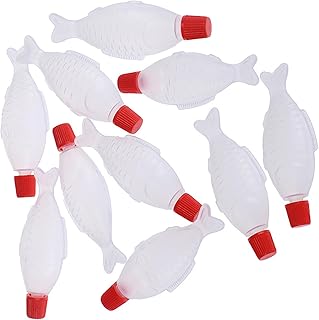South Australia has taken a pioneering step by becoming the first place globally to ban fish-shaped plastic soy sauce dispensers. This ban is part of a broader crackdown on single-use plastics, set to be enforced from 1 September. The iconic fish-shaped dispensers, known as shoyu-tai in Japan, have been a staple at sushi outlets worldwide for decades.
The concept of these fish-shaped soy sauce containers originated in 1954 when Teruo Watanabe, the founder of Asahi Sogyo in Osaka, introduced them as a convenient alternative to traditional glass and ceramic vessels. The innovation, named the “Lunch Charm,” gained popularity rapidly in Japan and eventually made its way to various corners of the globe.
Under the new South Australian law, only pre-filled soy sauce containers containing less than 30ml and equipped with a lid, cap, or stopper will be permitted. Plastic sachets will still be allowed, but the government encourages the use of bulk dispensers or refillable options in sushi establishments.
Dr. Susan Close, South Australia’s environment minister, emphasized the environmental impact of these plastic fish containers, highlighting their contribution to litter on beaches and streets due to their small size and ease of disposal. The ban also extends to other single-use plastic items like plastic cutlery and expanded polystyrene food packaging.
Marine ecologist Dr. Nina Wootton from the University of Adelaide pointed out the dangers posed by plastic sushi fish to marine life. The thick plastic material can be mistaken for food by marine creatures, potentially leading to ingestion and harm to the ecosystem.
Campaign manager Cip Hamilton of the Australian Marine Conservation Society commended the ban on single-use plastics as a positive step but stressed the need for broader action to address plastic pollution comprehensively. Hamilton urged governments to implement robust regulations that reduce plastic production and consumption while holding businesses accountable for the plastic products they introduce into the market.
Efforts to curb plastic pollution have gained momentum globally, with increasing awareness of the detrimental effects of single-use plastics on the environment. The move by South Australia to ban fish-shaped soy sauce dispensers sets a precedent for other regions to adopt similar measures to reduce plastic waste and protect marine ecosystems.
As the world grapples with the challenges of plastic pollution, initiatives like the ban on fish-shaped soy sauce dispensers in South Australia serve as a reminder of the urgent need for sustainable practices and policies to safeguard the planet for future generations.
📰 Related Articles
- War Hero’s Stolen Medals Returned by South Australia Police
- Virgin Australia Partners with Qatar Airways for Enhanced Global Connectivity
- University of Western Australia Cultivates Global Leaders Through Engagement
- UN Expert Calls for Global Trade Ban on Israel
- South Australia Braces for Refinancing Surge Amid Rate Cut Speculation






